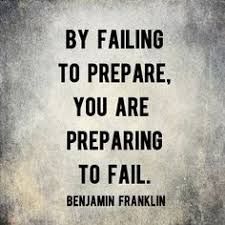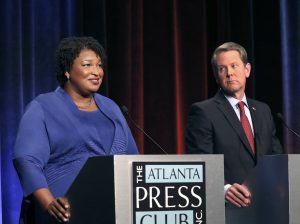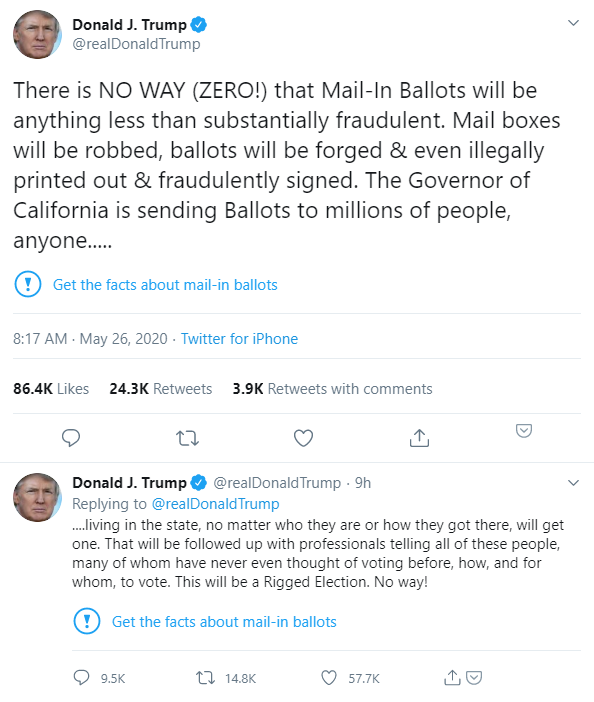By Harold Hutchinson
This is the third installment in the series Lessons Learned From 2020. Read parts one and two Here and Here.
There are things that can be learned from the Trump campaign and applied to future races. A key part of that picture lies in how the battlefield preparation of those who sought Trump's defeat enabled election officials in certain jurisdictions to make their own rules.
 What is battlefield preparation? Lawfareblog.com explains that battlefield preparation (also known as preparing the battlefield) is “a concept encompassing an array of activities the military might undertake in advance of hostilities to maximize success once hostilities begin.” In the context of 2020, this does not involve planning to wage a shooting war, but in essence, battlefield preparation is what you do to maximize your chance of success when any sort of fight starts.
What is battlefield preparation? Lawfareblog.com explains that battlefield preparation (also known as preparing the battlefield) is “a concept encompassing an array of activities the military might undertake in advance of hostilities to maximize success once hostilities begin.” In the context of 2020, this does not involve planning to wage a shooting war, but in essence, battlefield preparation is what you do to maximize your chance of success when any sort of fight starts.
Note that proper planning—as opposed to a failing to plan—involves preparing the battlefield. Perhaps the most notable example of this battlefield preparation by the Left was in Georgia. While the pandemic dominated the news, the state of Georgia signed a consent decree that made signature verification for mail-in ballots impossible in practical terms. In essence, a vital guardrail for ensuring election integrity was removed—and it happened eight months before election day.
Now, some self-proclaimed “fact-checkers” in the media, as well as Big Tech claim that President Trump’s concerns about the decree are overstated. But what they didn’t mention is that in order for the signature mismatch provisions to be triggered, those making the challenge had to put their names down as challenging a given ballot.
In an era when those who cross the Left get doxxed and hounded (see the harassment of the Wayne County canvassing board members who initially refused to certify the results), who would put their name down as challenging a questionable signature? Especially considering that Stacey Abrams, the loser of the 2018 gubernatorial election (whose two-year tantrum and refusal to concede is painted as heroic by the same media that blasts Trump’s exercise of his legal options as a danger to democracy), would be crying “voter suppression?” Not too many would volunteer for that.
 So, for all intents and purposes, Trump came to the fight over Georgia facing a legal stacked deck. The Left can point to the consent decree and demand Georgia follow it, making it that much harder to persuade state legislatures that fraud happened, never mind convincing them to exercise their powers under Article II of the Constitution.
So, for all intents and purposes, Trump came to the fight over Georgia facing a legal stacked deck. The Left can point to the consent decree and demand Georgia follow it, making it that much harder to persuade state legislatures that fraud happened, never mind convincing them to exercise their powers under Article II of the Constitution.
This didn’t just happen in Georgia. In Michigan, the Secretary of State unilaterally mailed out 7.7 million absentee ballot applications. While Trump called it out on Twitter, Team Trump never filed litigation, either on its own or in conjunction with the state legislature which clearly had the right—some would even say, the duty—to challenge the increasingly lawless executive branch in that state.
This is not to say President Trump didn’t do some battlefield preparation of his own. He warned about the potential for fraud inherent in mail-in ballots. But the preparation was not as complete as it could have been; a failure that shows the planning was not as thorough as it should have been and that incomplete preparation has consequences.
For starters, Trump could have cited the 2005 Carter-Baker report in his warnings. In this case, citing Jimmy Carter would have been a good shield against highly predictable media attacks. It wouldn’t be perfect, but it would have been a start. Another measure Team Trump should have taken would have been to monitor and fight the litigation brought across the country to expand mail-in balloting.
 North Carolina 9th District election fraud hearing
North Carolina 9th District election fraud hearing
State Board of Elections hears evidence of alleged scheme to illegally collect absentee ballots.
Another step that was taken but not highlighted enough was to point out actual cases of vote fraud, not just where mail-in/absentee ballot fraud had affected elections, but also in places like Philadelphia. Trump should have called out his own party over the 2018 antics in a North Carolina congressional race, to further buttress his campaign’s legal efforts.
Even if the legal efforts didn’t succeed, at that point, Trump could have said, that while he respects the court’s decision, he will be insisting on a fair and transparent count that is conducted according to the laws passed by the state legislatures, and reserves the right to exercise all legal remedies should that not happen.
The fact of the matter is that those seeking to beat President Trump did a lot to maximize their chances in the weeks and months prior to election day. Their preparation of the election day battlefield made Trump’s legal fight that much harder. Had Trump done more thorough preparation, or if they had successfully fought some of the litigation, we might be having some very different conversations today.
Harold Hutchison has nearly two decades of experience covering a variety of topics, including politics, national security affairs, foreign policy, Second Amendment issues, and sports. He has been published in numerous media outlets, including National Review, the Daily Caller, the Patriot Post, Ammoland.com, and the Washington Examiner.



